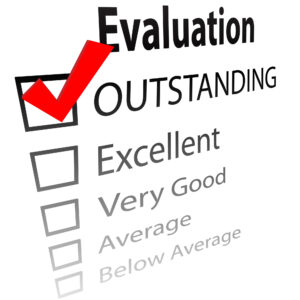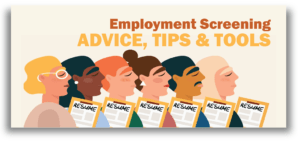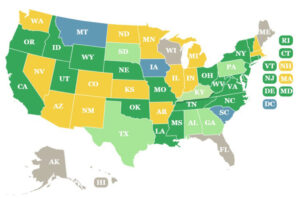
![]()
Resource Listings
Why Even Strong Candidates Fail a Background Check
In today’s competitive hiring landscape, employers are working harder than ever to protect themselves against risk while simultaneously identifying top talent, and background checks play a central role in this process. Background checks offer a structured way to verify a candidate’s history, qualifications, and trustworthiness. Yet even highly qualified, seemingly impeccable candidates sometimes fail a background check—often to the surprise of both the employer and the applicant.
Identity Verification in Hiring: What Every Job Seeker Should Know
In today’s digital-first hiring environment, identity verification has become a standard part of the recruitment process. Whether you’re applying for a remote role, onboarding with a multinational company, or participating in a virtual interview, chances are your identity will be verified. For job seekers, understanding how identity verification works—and how to navigate it confidently—is essential to protect personal data, ensure fair treatment, and present professionally.
How to Prepare for a Background Check: A Job Seeker’s Guide to Confidence and Clarity
At some point during your professional journey, you may experience an employment gap. As the saying goes, in life, “stuff happens.” The key is to own your story, highlight your growth, and demonstrate your enthusiasm for the future. By preparing thoughtful explanations and focusing on your strengths, you can turn a potential concern or red flag into a compelling part of your professional narrative. Whether it stems from caregiving, layoffs, health challenges, travel, or personal growth, what matters most is how you frame the experience and communicate it with clarity and confidence.
Bridging the Gap: How to Explain Employment Gaps When Applying for a Job
Landing a job offer is exciting — but before you start celebrating, there’s one final hurdle many employers require: the background check. While the idea of someone digging into your past might feel intimidating, background checks are a standard part of the hiring process, designed to verify your qualifications and ensure workplace safety. The good news? With a little preparation, you can approach this step with confidence and transparency.
What to do if Someone Uses a Deepfake of You and Steals Your Identity to Get a Job
Imagine discovering someone has created a deepfake video of you and used your name and Social Security number to land a job. The scenario may seem like science fiction, but this type of cyber-enabled identity theft is becoming increasingly real. Deepfakes — highly realistic synthetic media generated by artificial intelligence — can be used for fraud, misrepresentation, or even criminal acts carried out in your name.
Expunging Criminal Records: A Path to a Clean Slate
For many individuals with criminal records, the ability to expunge or seal their past convictions can be life-changing. Expungement removes barriers to employment, housing, and education, allowing previously incarcerated individuals to reintegrate into society with a fresh start. While expungement laws vary by state, some jurisdictions have implemented automatic expungement programs to streamline the process.
Important Warning for Job Seekers
To everyone who is currently Open to Work on LinkedIn: please stay vigilant. There is a growing number of scammers pretending to be Recruiters or Talent Acquisition professionals. They are reaching out with fake job opportunities and asking you to click suspicious links or submit personal information.
Navigating the Professional Reference Check Process: Key Insights for Job Seekers
Professional reference checks are a very important part of the job search and background checking process. Consequently, it is important for job seekers to understand the professional reference checking process and what it involves. While you do not fully control the information that may be shared in a professional reference check it is a crucial step in the job-hunting process, and you must do your best to positively impact the process.
Dealing with being fired and understanding what will become a part of your employment record?
Part 2 of a 2-part series –
Being terminated from a job is a traumatic experience; however, while it is certainly a definitive moment in your career journey, you should not let it define you or your future. The focus of this article is about when you are terminated for cause or violating a company policy. It is not my intent to diminish the impact of losing a job by being laid off or part of a downsizing initiative is less painful, but this type of termination will not garner as much attention as a termination for misconduct. Nevertheless, with the right planning, foresight, and preparation, you can put this unpleasant juncture in your work life behind you and build a successful career.
Dealing with being fired and understanding what will become a part of your employment record?
Part 1 of a 2-part series –
Being fired from a job can be one of the most challenging experiences a person can go through. It can leave you feeling lost, hurt, and uncertain about the future. However, it’s important to realize that being fired is not the end of the road, but the first step towards traveling on a new road. With the right approach and mindset, you can turn this setback into an opportunity for growth and new beginnings. As Lao Tzu said, “Every journey begins with the first step” so let’s start with the first things you need to do.
A Guide for Job Seekers on How to Navigate the Background Check Process
In the age of the Internet, it is customary before making a significant purchase for most people to meticulously read reviews to ensure we’re making a wise investment. Similarly, employers conduct background checks to ensure they’re hiring the right candidate before investing in their new employee. Typically occurring after the interview stage, background checks are designed to help assess your credibility, your suitability for the role, and the company culture.
Pardons, Sealed Records, and Expungements: Navigating Employment Decisions
The number of Americans with a criminal history has risen sharply over the past three decades. Today, nearly one-third of the adult working age population has a criminal record. In fact, so many Americans have a criminal record that as many criminal convictions exist as college degrees which is an important reason why “ban the box” laws have emerged across the country. Individuals who have been convicted have to navigate an intricate landscape to find meaningful employment. Getting hired can be challenging, especially when considering the legal frameworks surrounding criminal records. Understanding pardons, sealed records, and expungements is crucial for job seekers to effectively navigate this territory. These legal mechanisms can significantly impact employment opportunities and decisions, ensuring fairness and second chances in the hiring process.
How do I correct information that resides in due diligence databases about me that is incorrect?
Due diligence databases are a critical component of background checks that are used by all background-checking providers. However, inaccuracies in these databases can have serious consequences on your application for employment and cause you to lose out on great job opportunities. If you discover incorrect information about you exists in a due diligence database, you should act swiftly to rectify the situation.
Will Your DUI Show Up on Your Background Check
It is not unusual to have gotten a traffic ticket at some point in your life. A ticket can be stressful and expensive, but it’s usually a relatively easy process—you pay the fine or contest the ticket and move on. Unfortunately, the simplicity of this process oftentimes leads people to believe that a DUI charge is just as minor. It’s not
How to Verify Employment when a Previous Employer is Out of Business
One problem job applicants occasionally encounter is the need to verify previous employment when the company they worked for is no longer in business. In this article. you’ll learn tips and strategies to uncover your complete work history even when the company no longer exists.
What Job Seekers Need to Know About Warrants and Background Checks
Background checks are a common part of the hiring process, but whether warrants appear on them is not always straightforward. The type of warrant issued and the jurisdiction where it is issued will determine whether that information is accessible on a background check. Not all warrants are equal from a legal standpoint. We’ll cover the most common warrants and whether they appear in background checks.
How to Get Educational Records for the University You Attended That Has Closed
You have been actively looking for a job for a while and have finally gotten a job offer. The employer asks you to sign an ‘Acknowledgement and Consent’ form permitting them to verify your education records. You sign the form, but inside, you are panicking because the University you graduated from has closed.
You just received a job offer for a great job contingent on a satisfactory Background Check. How long will the background check take?
You have found a great job and received an offer which you accepted. The job offer was made contingent on you satisfactorily passing the background check. Now the wait begins. How long will the background check take? It is important to understand that background check is an essential part of the hiring process for employers to ensure that they are hiring the right person with the right skills and to help minimize their risk.
What Job Applicants and Employees Need to Know About How Long Marijuana Stays in Your System?
In today’s world, marijuana use is becoming increasingly normalized. In the United States A total of 41 states, as well as the District of Columbia and Puerto Rico, have medical marijuana programs and 23 of those have decriminalized cannabis or have full adult-use programs.
Overcoming the Hurdle:
Misdemeanors and Your Job Search
A criminal record, even a misdemeanor, can adversely affect your job search. While it doesn’t automatically disqualify you, understanding how misdemeanors affect employment and taking proactive steps can significantly improve your chances of landing your dream job.
Navigating the Job Search: Understanding the Fair Credit Reporting Act (FCRA) and Employment Background Checks
Job search can be a complex process, and understanding the legal landscape surrounding background checks can help alleviate some of the associated stress. This article sheds light on the Fair Credit Reporting Act (FCRA) and its implications for job applicants undergoing background checks.
How to handle the situation when you need to give your former boss as a reference, but you frequently locked horns with him.
Building a stellar reference list is crucial to landing that next great job. But what if your former boss has a “don’t call us, we’ll call you” attitude towards providing glowing recommendations? Don’t fret! Let’s explore some alternative paths to gather positive, impactful references, even when things didn’t go so well with your last manager.
To Disclose or Not Disclose: That is the Question
For many employers, the information found in a background investigation can often inject more ambiguity than clarity into the hiring process. The same can be said of job candidates who may be uncertain about whether, how, when, or to whom they should disclose information about a past indiscretion. The many dimensions of this issue were highlighted in the responses to the following question, which was posted as a poll on the LinkedIn page of Liz Ryan, founder and CEO of Human Workplace: I am job hunting. I have had a DUI from three years ago. It will surely come up in a background check. Should I mention it in the interview? The question clearly struck a chord with Liz’s followers. It racked up 19,627 votes, with respondents nearly split on the issue.
![]()
Ten Critical Steps for Ex-Offenders to Get Back into the Workforce
Here are ten (10) approaches a person with a past criminal record can consider when seeking employment:
1. See an attorney to explore if you are eligible to get your conviction sealed, expunged, or judicially set aside.
2. You may have the Legal Right to say NO on an application or interview if asked about a criminal record.
3. Does “Ban the Box” apply to you?
4. Understand your rights under the Fair Credit Reporting Act (FCRA) and state laws if there is a background check and your criminal record is being used against you.
5. If a background report is not 100% correct and accurate, immediately contact the background screening firm and the employer.
6. Request an Individualized Assessment of your situation.
7. Seek professional assistance and talk to people experiencing the same challenges.
8. Honesty is the best policy.
9. Start to rebuild your résumé one step at a time, even if it is not the “perfect” job.
10. Take the long-term view.
Source: Author and Copyright Holder: Lester S. Rosen, Esq. Founder and former CEO of Employment Screening Resources (ESR)
![]()
Background Checks: What Job Applicants and Employees Should Know
Some employers look into your background before deciding whether to hire you or before deciding whether you can keep your job. When they do, you have legal rights. The Federal Trade Commission (FTC) enforces a federal law that regulates background reports for employment, and the Equal Employment Opportunity Commission (EEOC) enforces federal laws against employment discrimination.
![]()
My Background Check Report mistakenly reported that I have a Criminal Record. What can I do?
According to the Professional Background Screening Association, 94% of all organizations conduct some form of background check before hiring new employees. In addition, 69% of these organizations conduct criminal record checks, according to the Society of Human Resource Management.
![]()
Is Asking Job Applicants About Their Salary History Okay in Your State?
Historically, one of the questions a prospective employee typically would get asked in a job interview is regarding their current or past salary. This question has been asked by businesses as a primary factor in determining the potential salary for the new hire.
![]()
What Can You Do to Disqualify Yourself from a Background Check?
Perhaps you have not given thought to things that can disqualify you in a background check while seeking employment. Here is a list that will help you stay away from those actions!
![]()
Why Do Employers Check Applicants’ Credit?
When preparing to apply for a new position you have a lot of things to consider. One of the important considerations should be for you to be prepared for the company you are interviewing with to conduct a credit check as part of the employment background check process.
![]()
Job Seekers – Drug Testing, What to Expect
Most employers these days require pre-employment drug testing with an offer of employment. The offer of employment may be contingent upon a clean background check and a negative drug test. For companies regulated by the United States Department of Transportation (DOT), the pre-employment drug test is required by Federal regulations. In this article, we want to inform job seekers what to expect with their drug test, and the following topics will be discussed.
![]()
What Every Job Seeker Should Know About Background Checks
When you’re searching for a job you already have enough on your mind. Between trying to find a way to leave your current job gracefully and going through the long interview process with different companies, the last thing you need to do is lose any sleep over employment background checks.
The typical pre-employment background check has become so expected that most people don’t give them a second thought. You may not be new to employment background checking, but there are still some important things to know.
![]()
What Every Job Seeker Should Know About Social Media Background Checks
Are you looking for a new job? In this internet age, social media background checks have become a vital part of the screening process by employers. Accordingly, it is important that you understand how employers use these checks to ensure your social media posts improve instead of undermining your chances of getting hired.
The following are some of the most essential items job seekers should know about social media checks.
![]()
Self-Background Checks: Conducting a Background Check on Yourself
Employers conduct background checks as a necessary step in their hiring process. Do you know what information is being reported about you in a background check? If the answer is ‘no’ or you have doubts then you are rolling the dice with your job search because if derogatory information shows up it could cost you a great job. To avoid the potential of this situation occurring be proactive and conduct a background check on yourself so you know what information is being reported to potential employers.
![]()
Cornbread Hustle is a staffing agency for second chances. We focus on helping people returning from incarceration and those in recovery find meaningful work. We provide jobs for men and women with any and all criminal backgrounds, and all criminal charges/convictions. All of our positions are temp-to-hire with a guaranteed offer of permanent, full-time work within 90 days after meeting obligations. Cornbread Hustle partners with employers to create second-chance hiring opportunities. Learn more at cornbreadhustle.com.
Cornbread Hustle
17766 Preston Road, #215
Dallas, TX 75252
Phone: 469-294-8799
Email: info@cornbreadhustle.com
Website: cornbreadhustle.com
Jobs board: cornbreadhustle.com/jobs
![]()
Honest Jobs has built the nation’s largest fair chance employment marketplace. We are dedicated to helping people with criminal records find employment fast.
We know the challenges first-hand: The majority of our employees, including our Founder & CEO, have felony convictions and have struggled to find fair employment opportunities since serving their sentences. Honest Jobs is partnered with nearly 1,000 companies across the U.S. that actually hire fair chance candidates. Men and women coming home from incarceration anywhere in the United States find jobs through us 8x faster than other leading job boards.
To get started create a free Job Seeker profile at HonestJobs.co Use our website to search for jobs in your area. Our system will analyze thousands of jobs and show you the ones that are the most compatible with your specific criminal background.
For more information and to see ‘Frequently Asked Questions’ visit: https://www.honestjobs.co/job-seekers
Less Rejection. More Results!
Cherie Oertel
Recruiting
Honest Jobs
Phone: 424-566-7780
Email: hjfounders@honestjobs.co
Website: honestjobs.co
![]()
Reentry Planner
Empowering Successful Transitions for Incarcerated Individuals
Reentry Planner is an innovative correctional tablet application designed to give incarcerated individuals the tools they need to plan their return to society. This powerful tool is tailored for use in correctional facilities across the US, providing a structured approach to reentry planning.
![]()
Shelby County Tennessee
Job Opportunities
Regardless of your arrest or conviction history, Shelby County Government is looking for individuals who are ready to put their talents to work for our community. From clerical positions to support services to trained technicians, we have a place for you to start your career.
Whether it is part-time or full-time employment, seasonal or sustained, new job opportunities are open every month. Together we will help you find a place to get back to work and back to contributing to your community.
Restoration of Rights Project

50-State Comparison:
|
![]()
Clean Slate Laws in the United StatesStates that have CS laws enacted Pennsylvania (2018) States with pending bills as of September 19, 2023 Kentucky (HB 588) *There is no guarantee that a pending bill will go through to signature by the governor or enactment. |
Michigan Department of Attorney General – Expunging ConvictionsThe Michigan Department of Attorney General Expungement site is designed to help applicants navigate their way through the new expungement laws, help them determine if they are eligible to have convictions expunged, answer frequently asked questions about the new laws, and to provide links for resources and assistance. This site will be updated regularly as new parts of the laws go into effect. You may not need an attorney to represent you to expunge criminal offenses. Many applicants filed applications on their own without the help of an attorney. If you would like to hire an attorney or need legal help, please refer to the “Legal Services” section of this website. |
California Law Will Seal Certain Criminal Records of Ex-OffenderBeginning July 1, 2023, California Senate Bill 731 (SB 731) makes criminal record sealing available for a defendant convicted of a felony on or after January 1, 2005, if the defendant completes all terms of incarceration, probation, supervision, and parole and is not convicted of a new felony offense for four years. SB 731 specifies that conviction record relief does not release the defendant from the terms and conditions of unexpired criminal protective orders. Registered sex offenders were excluded from the legislation, and those convicted of serious and violent crimes would have to petition a court to have their records sealed. Criminal records will still be provided to school districts, county offices of education, charter schools, and private schools that conduct background checks for job applicants. People who have their records sealed also would be required to disclose their criminal history if asked when applying for a job in law enforcement or public office. |

An evaluation for job performance or a grade report card with a 3D checkmark in the OUTSTANDING box.
The Reintegration Report Card Grading the States on Laws Restoring Rights and Opportunities After Arrest or ConvictionThis Report Card supplements our recently published 50-state report, “The Many Roads to Reintegration,” a survey of U.S. laws aimed at restoring rights and opportunities after arrest or conviction. That report includes topical essays covering voting and firearms rights, an array of record relief remedies, and consideration of criminal records in employment and occupational licensing. The “Many Roads” report assigned to each state, D.C., and the federal system a grade for nine different types of restoration laws. |
![]()
D.C.’s Second Chance Amendment Act: How to Clear Your Criminal Record in 2025
In Washington, D.C., having a criminal record can feel like a life sentence, even after you’ve served your time. But there’s good news. The Second Chance Amendment Act of 2022 is finally set to take effect in March 2025, and it brings the most significant changes to D.C.’s record-sealing laws in years. If you have a criminal record in the District, this law could be your shot at a clean slate.
![]()
Checkr’s Expungement Service
At Checkr, we believe a criminal sentence should never be a life sentence for unemployment. We believe human potential should not be limited by the past, and we work to expand people’s opportunities.
To promote our mission of fair-chance hiring, we built an affordable end-to-end expungement process for candidates, which leads them from qualification to completion.
We currently support expungements in California. If you have a charge in California, that you think qualifies, start our process.
This interactive map helps to identify and connect you with community-based organizations supporting people who are justice-impacted through job readiness programming, re-entry services, and skills training. We hope this map will facilitate partnerships between employers and workforce organizations that open doors to new talent pools and connect people who are justice-impacted with meaningful career opportunities. This map currently includes over 600 organizations across 45 of the top job markets in the United States. The Second Chance Business Coalition is actively researching additional community organizations and adding new markets to the map.
Biden Exec Order Federal Pardon
Presidential Proclamation on Marijuana Possession
On October 6, 2022, President Biden issued a presidential proclamation that pardons federal convictions for simple marijuana possession offenses. The proclamation applies only to federal convictions, including D.C. Code offenses, and does not apply to convictions under state or local law.
Certificate of Pardon for the Offense of Simple Possession of Marijuana on or before October 6, 2022
How a pardon can help you.
A pardon is an expression of the President’s forgiveness. It does not signify innocence or expunge the conviction. But it may remove civil disabilities — such as restrictions on the right to vote, to hold office, or to sit on a jury — that are imposed because of the pardoned conviction. It may also be helpful in obtaining licenses, bonding, or employment.
How to qualify for the pardon.
You qualify for the pardon if:
- On or before October 6, 2022, you were charged with or convicted of simple possession of marijuana by either a federal or D.C. Superior court.
- You were a U.S. citizen or lawfully present in the United States at the time of the offense.
- You were a U.S. citizen or lawful permanent resident on October 6, 2022
Request a certificate to show proof of the pardon.
A Certificate of Pardon is proof that you were pardoned under the proclamation. The certificate is the only documentation you will receive of the pardon.
What you’ll need for the request.
Become an educated and empowered job seeker with insightful advice from leading experts about the background screening process. Check out the articles written for Job Seekers.
![]()















